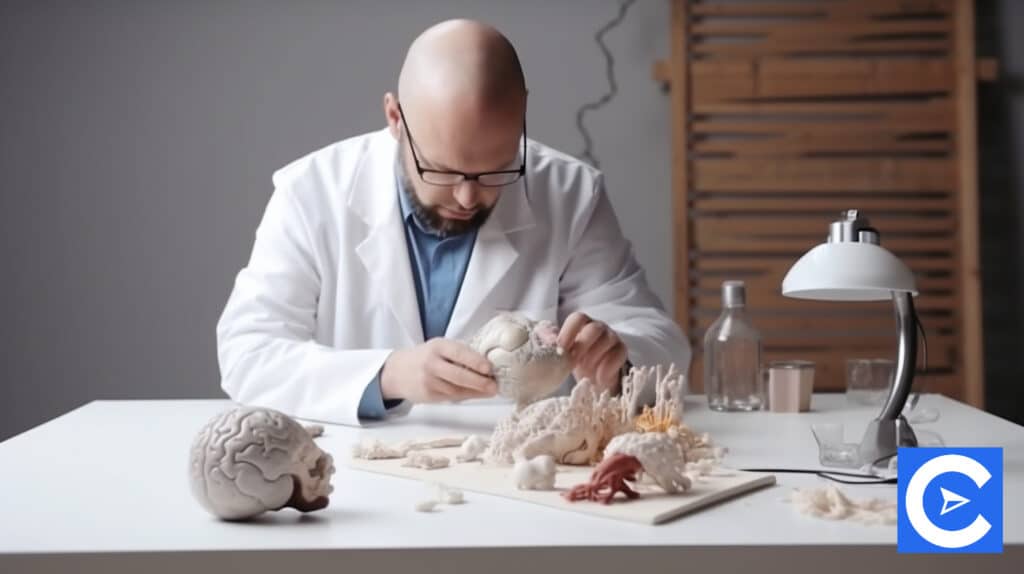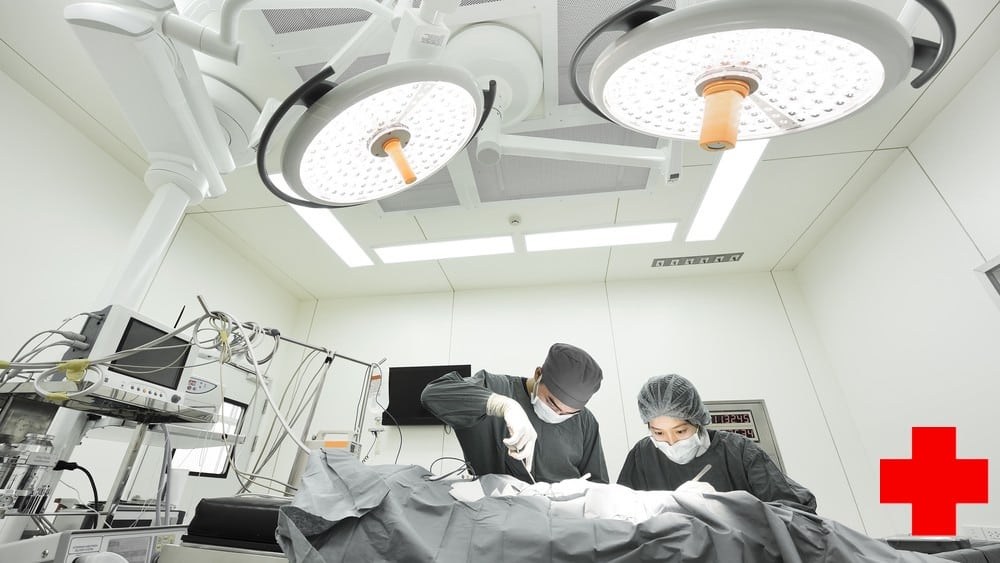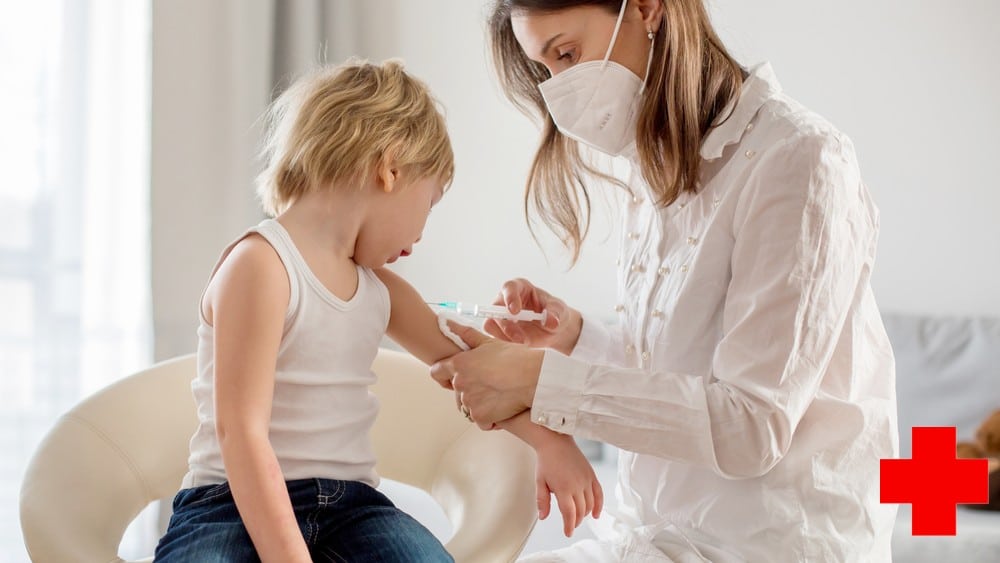Welcome to the complete guide on Psychiatric Nurse Certification!
This article provides you with information on the educational requirements of the certificate program, the benefits of it, and the process that other Nurses have used over the years.
After reading this comprehensive article from beginning to end, you will understand everything about getting the Psychiatric Nurse Certification.
We will discuss the following:
- The benefits of getting a Psychiatric Nurse certification
- Education requirements for certification
- The PMHNP certification exam
- How to become a Certified Psychiatric Nurse
Let’s get started right away!
Introduction

A Psychiatric Nurse is an Advanced Practice Registered Nurses (APRNs) who can offer primary care to patients with mental issues.
They hold competencies in both neurobiological and psychosocial areas that allow them to diagnose, assess, and hopefully treat their patients.
The lifespan of knowledge gained by Nurses might be fleeting and needs to be improved upon to provide quality care and the necessary interventions.
They specialize in assisting individuals with mental health issues.
Nurse Practitioners are asked to seek certification, not only for monetary purposes, but also to improve the quality of service offered to individuals and the community, especially as mental illness evolves.
In this article, we’ll look at what a Mental Nurse certification is and how you can get one.
The importance/ benefits of getting a Psychiatric Nurse Certification

Before you move ahead of obtaining a psych nursing license, you should be aware of what it is and the advantages it provides.
An RN’s reputation for advanced abilities in mental health care and commitment to their patients is bolstered by Psychiatric Nurse Certification.
As service providers, it increases the chances of an RN to land a desirable specialty and competitive job.
So, who needs to be certified as a Psychiatric Nurse?
RNs that are already working as Nurses (whether in private or public health practice) but want to specialize in mental treatment.
There is one main body that offers mental health certification: the American Nurses Credentialing Center (ANCC).
Registered Nurses are asked to take, complete, and pass a board certification exam.
The board certification test is competency-based and seeks to assess the technical skills and understanding that a Psych Nurse has gained through her experience and learning.
The Psychiatric Mental Health Nurse-Board Certified (PMH-BC) credential is awarded to Nurses who pass the exam.
As a Psychiatric Mental Health Advanced Practice Registered Nurse, Nurse Practitioners can earn advanced certification (PMH-APRN).
What is the significance of Psychiatric Nurse Certification?
With this additional information, you can be able to assess mental disorders in the ill, diagnose, and offer the right treatment plan.
Certification can give you the opportunity to offer psychotherapy and broaden your scope of practice.
Requirements for PMHNP certification

Psychiatric Mental Health Nurse Practitioners with a master’s program can seek national certification; the program, however, needs to be an accredited one.
There is a process that must be followed before a candidate can apply to the program.
More information on the licensing exam for Registered Nurses and State licenses has been provided below.
Requirements for the PMHNP certification include:
- Enroll and finish a PMHNP program and coursework – advanced pharmacology, pathophysiology, health promotion, advanced health assessment, and maintenance and disease management are all required during graduation
- Have 500 clinical hours (faculty-supervised) approved by the Accreditation Commission for Education in Nursing or the Commission on Collegiate Nursing Education (CCNE), and have expertise in clinical training in at least two psychotherapy modalities (ACEN)
- Take the Psychiatric Mental Health Nurse Practitioner exam and pass it (PMHNP-BC)
- Apply for and earn psychiatric certification in your state – please keep in mind that different states have distinct standards and regulations, as well as different practicing laws and credentials
The PMHNP certification exam
Students who complete the obligatory PMHNP certification exam are awarded the PMHNP-BC credential.
The PMHNP-BC, Psychiatric Mental Health Nurse Practitioner board certification, test validates a Nurse Practitioner’s psychiatric expertise and mental health by assessing, diagnosing, providing emergency psychiatric care, prescribing medication, and treating patients with mental health issues.
Most states need certification to practice, thus becoming an authorized PMHNP is essential.
The Psychiatric Nurse Practitioner certification exam is administered and evaluated by the American Nurses Credentialing Center (ANCC).
The PMHNP-BC test examines core PMHNP clinical knowledge and skills competency.
The test scores 150 questions broken down into five categories:
- Twenty-two questions (15%): psychotherapy-based
- Twenty-three questions (15%): Ethical principles
- Thirty scientific questions (20%)
- Thirty-seven questions: diagnosis and treatment
- Thirty-eight questions: advanced practice skills
How to Become a Certified Psychiatric Nurse

Here are the steps to acquiring a certification in psychiatric nursing:
Be a Registered Nurse
The first stage would be to gain the necessary education background, often through an accredited university:
- Nursing associate’s degree (two years) (ADN)
- A nursing diploma that lasts three years and is situated in a hospital
- A Bachelor’s Degree in Nursing is earned after completing a four-year college or university program (BSN)
Your next step would be the National Council Licensure Examination (NCLEX).
The examiners would access you to prove your mettle and resolve through performing nursing skills that you would have picked up over the years.
You would now have the requirements to get a Registered Nurse, RN license.
If you are looking to practice in more than one state, consider applying for the Nursing Licensure Compact.
You don’t have to apply for licenses for several states if you have the compact license.
Gain experience
Working as an RN in a full-time clinical job for at least two years is required.
Nurses can work in a variety of settings, including, private practices, clinics, hospitals, and psychiatric facilities.
The latter option may be particularly advantageous to those pursuing mental health certification.
Advanced education: Master’s or Doctoral Degree
Registered Nurses seeking certification as Nurse Practitioners in psychiatric mental health must have a Master’s (MSN) or Doctoral (DNP) degree.
Do your research and identify psychiatric-mental health nursing programs.
They will give you an opportunity to test your experience and build upon skills that you learned in your undergraduate or graduate days.
Many Nurses earn a master’s degree and deem that enough.
The more ambitious Nurses may enroll for a DNP program that will serve them well in the future.
Continuing Education (CE) hours and clinical practice
Before taking a certification exam, you must have completed at least 2,000 hours of clinical practice in mental nursing.
This can be done in a variety of settings, including home health care groups, general hospitals, private practices, and psychiatric hospitals.
If you have enrolled in any graduate program, you can use the coursework and programs as your continuing education.
Apply and pass the board certification exam
Make an appointment for a certification exam, complete payment of the required fee, and pass the exam.
According to American Psychiatric Nurses Association, the rates for PMH-BC and PMH-APRN vary.
We recommend you log onto the ANCC for current costs.
Expect to be tested in four areas:
- Assessment and diagnosis: You will be tested on your skills for evaluating disorders
- Planning: This section revolves around your planning of patient care and general awareness of the patient’s condition
- Implementation: How does one implement therapy?
- Evaluation: You are queried on how you can improve your assessment over time
After passing the exam, you’ll be certified to practice as a Psychiatric-Mental Health Nurse wherever your license applies.
Conclusion

The Behavioral Health Workforce predicted a rapid increase of Psychiatric Mental Health Nurse Practitioners (PMHNP) by 2030 before the COVID-19 pandemic.
However, with the current Coronavirus health epidemic, the demand for Mental Health Nurse Practitioners is greater than ever.
This highlights the critical necessity for skilled and accredited mental health professionals to intervene and assist.
You however must meet the eligibility requirements set out by the certifying board.
FAQs

How difficult is mental health nursing?
Students are frequently startled when they begin mental health nursing and find themselves performing poorly on tests. Psychiatric nursing is more complex than general practice nursing in certain ways. However, many Nurses consider it to be the ideal career because of their skills, interests, and financial compensation.
How much does ANCC certification cost?
An ANCC exam costs $295 for ANA members and $395 for non-members to take. The ANCC offers a $340 discount to AANP members. To help you make an informed decision, download and examine the AANP test blueprint and the ANCC test content overview (blueprint) for your role.
Is psychiatric nursing hard to study?
Understanding the reasons for the challenges ensures you can approach them with more confidence and less stress. Unlike other nursing specializations, where programs build on prior knowledge, mental health nursing programs are likely to start from the ground up. Another critical factor is the depth of study.
Which exam is easier ANCC or AANP?
There is no explicit consensus. NPs who prefer the AANP examinations are as competent as those who choose the ANCC and have the same educational background. The ANCC exam tests students in various techniques, making it appear more comprehensive. In the end, though, all NPs receive the same certification.
What is the ANCC board certification?
The ANCC board certification exam is a competency-based test that assesses clinical knowledge and abilities in a valid and reliable manner. It allows you to develop your nursing profession and demonstrate your ability to deliver excellent patient care. It’s also a sign of your dedication to the nursing profession.
What is the average salary of Advanced Practice Registered Nurses?
In the United States, the average Advanced Practice Registered Nurse’s salary is $106,667 per year or $51.28 per hour. The bottom ten percent earn $74,000, while the highest ten percent earn $151,000 annually. The states with the highest APRN compensation include Massachusetts, Pennsylvania, and New York.
What are some of the benefits of getting the Psychiatric Mental Health Nursing Certification?
Although Psychiatric/Mental Health Nurse Practitioners finish a specialty track while in school, they must earn the credential after graduation. This certification shows the Nurse’s skill in caring for patients who require mental health services and is an expert in the subject. Nurses might use certification as a professional success.









